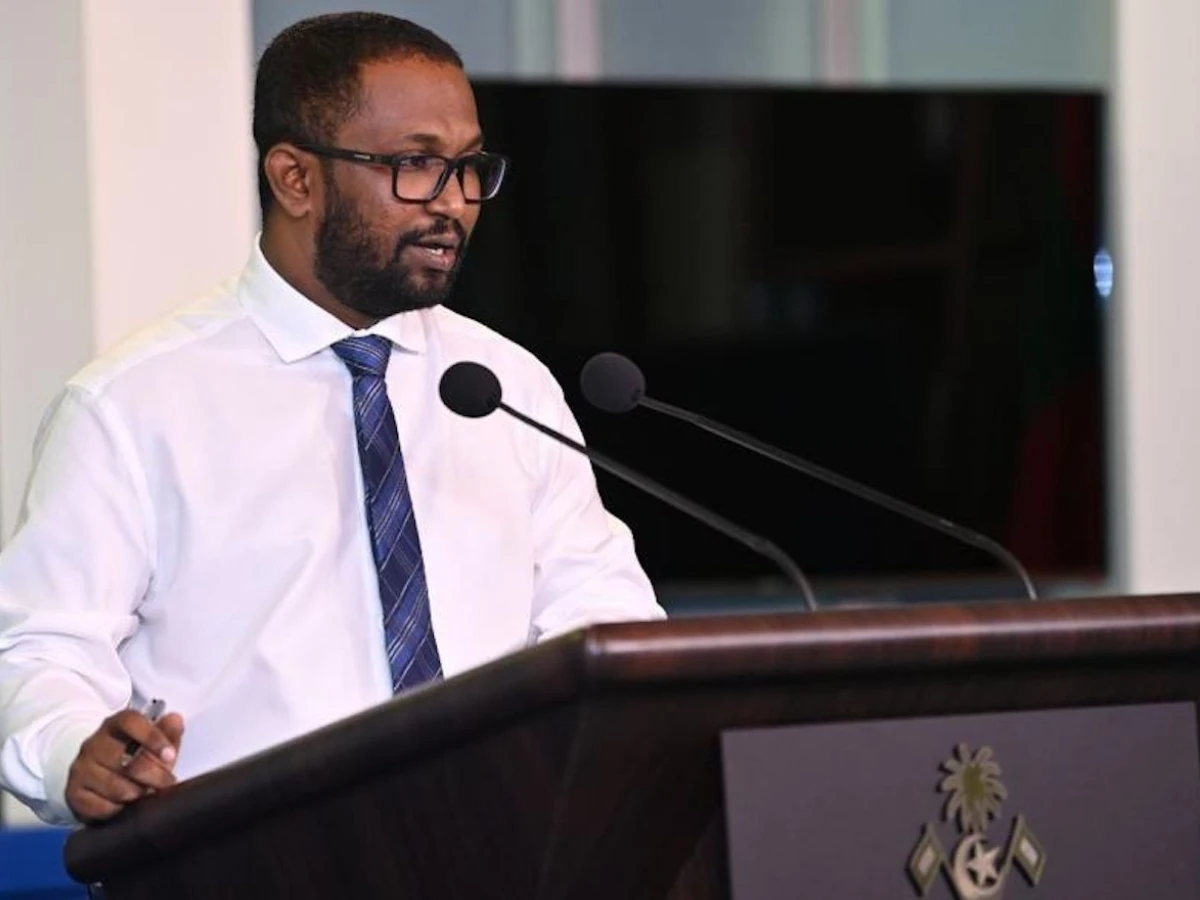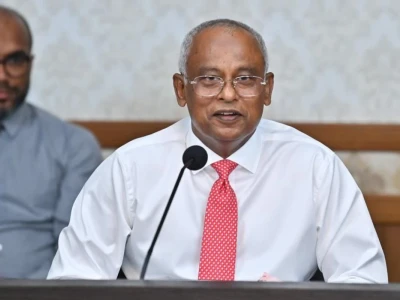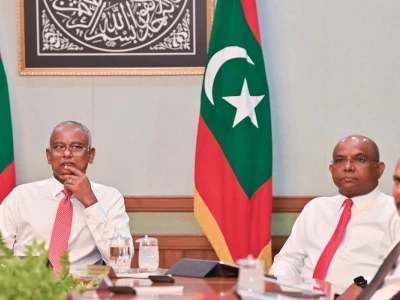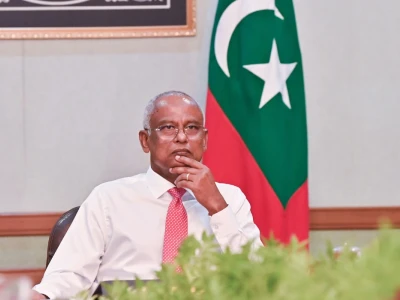
Some exaggerating policy change on Chagos dispute: Government
Responding to the criticism surrounding the decision, Spokesperson Miuwaan said that the accusers were talking about the case in a completely fictitious manner.
By
Mariyam Umna Ismail
Government said on Wednesday that some people are talking about the government's decision to recognise the Chagos islands in the south of Addu city as belonging to Mauritius in an overstated manner and that it has led to disinformation among the public.
Mauritius approached the International Tribunal for the Law of the Seas (ITLOS) and in the hearing on Thursday at Hamburg, Germany, the incumbent Maldivian Attorney General Ibrahim Riffath announced that the Maldives would vote in favour of Mauritius at the UN, saying that Maldives has changed its stand on the Mauritius issue.
While the government has assured that the decision will not affect the issue of Maldives-Mauritius sea demarcation, some have expressed concern that such a change in government policy will force the country to let go of a part of the economic zone.
At a press conference held at the President's Office on Wednesday, journalists questioned spokesperson Miuvan Mohamed about the peoples’ displeasure over the government's refusal to share the stance change on the Mauritius issue with the leaders of the ruling coalition and the parliament.
-
President of the main ruling MDP and parliament speaker Mohamed Nasheed had said that the government's decision that the Chagos islands belong to Mauritius is an agreement to give up part of the country's economic zone.
-
JP leader Gasim Ibrahim does not believe that the government's decision is in the best interest of the Maldives.
-
Since the government's stand changed without a word from the parliament, many MPs criticised the government; including those from the ruling party.
-
Former attorney general Dr Mohamed Munawwar alleged that the government changed its stand because of Indian interference.
-
Opposition leader and former president Abdulla Yameen has alleged that some people would have "taken bribes" for the policy change.
Responding to the criticism surrounding the decision, Miuvan said that some were talking about the case in a completely fictitious manner. He said the comments made people feel that "something huge is going down”.
"It's not a big deal. The way the speculation is ongoing, doesn't it feel like we’re selling off part of the country, like right now?", Miuvan said.
According to Miuvan:
-
A change in the government's stance on foreign affairs, especially in the votes cast at the United Nations, has always happened
-
Such changes happen in adaptation to global current affairs
-
It does not need to be communicated with the parliament
"We don't have to write reports to the parliament every time we hold a press conference on the matter. Such processes are unnecessary. Like I said, the Maldives’ stand on foreign issues like this changes in general, with regard to votes in the UN General Assembly," Miuvaan said.
The Attorney General's Office has also stated that the decision to vote in this year's UN General Assembly in favour of Mauritius is a foreign policy decision, which is the prerogative of the President and ensures that the change of stance will not affect the Maldives' position on the ongoing maritime dispute between the Maldives and Mauritius.




